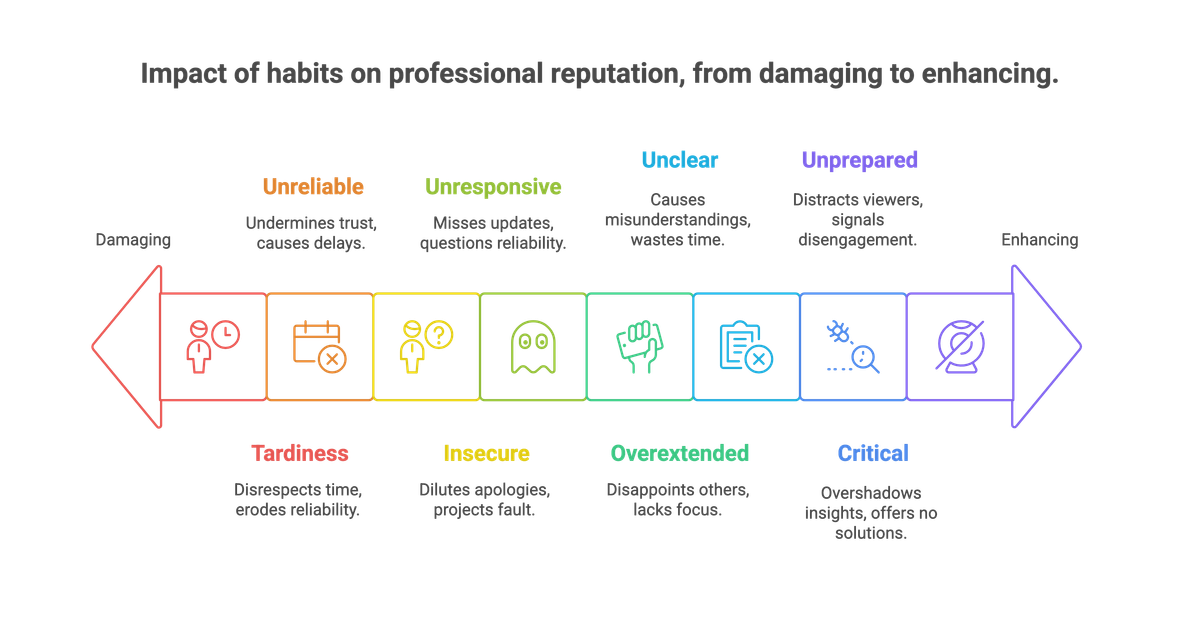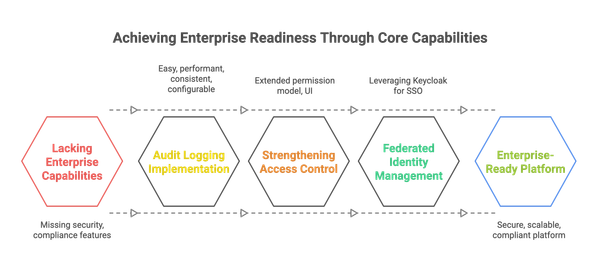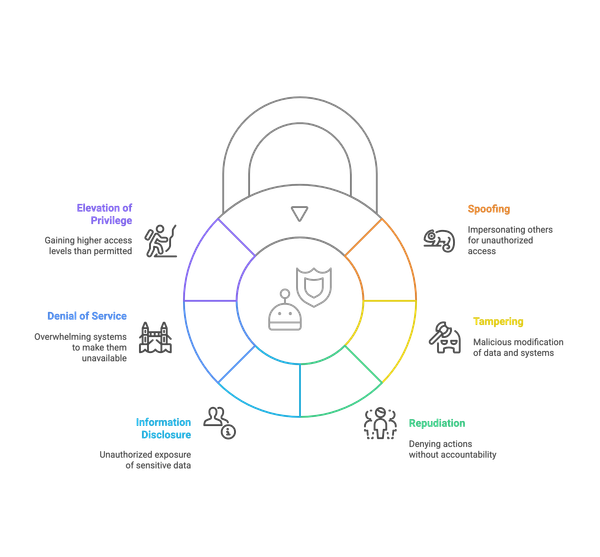8 Silent Habits That Secretly Sabotage Your Professional Reputation (And How to Fix Them Fast)

We all want to be seen as dependable, professional, and competent. But sometimes it’s not the big mistakes that hurt us — it’s the small, silent habits that sneak under the radar. These behaviors don’t cause immediate uproar, but over time, they chip away at how others perceive us.
Let’s face it: perception matters. And these eight habits might be quietly killing your professional image without you even realizing it.
Here’s what to watch out for—and how to fix each one before it does real damage.
1. ⏱ Chronic Latecomer Syndrome
❌ "Running 5 minutes behind" every single time.
It may feel harmless to be a few minutes late now and then, but being consistently tardy communicates something deeper:
- You don’t respect others’ time.
- You struggle with time management.
- You may lack urgency or seriousness.
Even a small delay can have a ripple effect—especially in tightly scheduled environments. It frustrates colleagues, delays discussions, and silently eats into productivity.
✅ Fix: Plan your day with buffers. Leave a 10-minute gap between meetings. Set your own alarms 5–10 minutes ahead. If working remotely, log in early and test your tech setup in advance.
Professional tip: Showing up early doesn’t just demonstrate punctuality—it signals leadership presence.
2. 📆 Deadline Drift Disorder
❌ "I’ll get it done when I can."
Deadlines are not just about speed—they’re about trust. When you consistently miss them:
- Your team loses confidence in your word.
- Your manager starts double-checking your output.
- Your name becomes synonymous with delays.
✅ Fix: Overcommunicate. Be transparent when you foresee delays and flag risks early. Use tools like Trello, Asana, or even shared spreadsheets to track commitments. Stick to internal check-ins before real deadlines to catch slippages in time.
Professional tip: Reliability beats brilliance in the long run. Be the person who always delivers—no surprises.
3. 🙇♂️ The "Sorry" Spiral
❌ "Sorry for the delay." "Sorry for asking."
Apologizing too much—even for trivial things—can backfire:
- It makes you seem insecure.
- It dilutes genuine apologies.
- It subtly positions you as someone who’s always at fault.
✅ Fix: Replace reflexive apologies with gratitude. “Thanks for your patience” sounds confident and respectful. Reserve apologies for situations where you truly made a mistake and it impacted someone.
Professional tip: Confidence is quiet. Let your tone show ownership, not regret.
4. 📭 Digital Disappearance Act
❌ Ghosting emails, chats, or DMs.
In today’s async work culture, silence is interpreted:
- Colleagues assume you're overloaded—or worse, disinterested.
- Your reliability comes into question.
- You miss timely decisions and updates.
✅ Fix: Acknowledge receipt even if you don’t have the full answer. A quick “Thanks, I’ll review and reply by tomorrow” keeps everyone in the loop. Use auto-replies if you’re truly unavailable.
Professional tip: Invisibility is not neutrality. Make presence a habit, not a burden.
5. 🤝 Commitment Overload
❌ "I’ll take care of it." (But never follow through.)
This is the classic trap of being helpful to a fault:
- You say yes without considering your bandwidth.
- You become overextended.
- You disappoint others—and yourself.
✅ Fix: Use a 3-second pause before agreeing. Ask clarifying questions. If in doubt, say “Let me get back to you after checking my priorities.” Only commit when you’re confident you can follow through.
Professional tip: Undercommit. Overdeliver. That’s how reputations are built.
6. ✉️ Communication Clutter
❌ Rushed emails, typos, vague asks.
Communication reflects thinking. When your writing is messy:
- It feels like an afterthought.
- It opens room for misunderstanding.
- You waste more time clarifying than collaborating.
✅ Fix: Pause before you send. Use tools like Grammarly. Break long thoughts into bullets. Be specific in your asks. For example: “Can you review and respond by Friday?” is better than “Thoughts?”
Professional tip: Write like you’re briefing a CEO—clear, concise, and actionable.
7. 🧯 The Problem-Only Person
❌ Always pointing out what’s wrong, never what to do next.
Being the person who always spots what’s broken isn’t a strength unless you also help fix it:
- Negative energy can overshadow your insights.
- People start tuning out even valid critiques.
✅ Fix: Shift from problem-sayer to solution-bringer. Offer ideas, options, or even questions like “What if we tried X?” You don’t need to have the perfect answer—just demonstrate initiative.
Professional tip: Teams remember contributors, not critics.
8. 🎥 The Virtual Faux Pas
❌ Messy camera view. Bad mic. Distracted expressions.
In remote and hybrid settings, how you appear on screen is your professional presence:
- Poor audio/visuals break the flow.
- Visual clutter distracts from your message.
- A dimly-lit face gives off disengagement.
✅ Fix: Check your video framing, sound, and lighting. Use a basic ring light and headphones with mic. Close tabs. Look at the camera—not the screen—when speaking.
Professional tip: A polished virtual setup says you’re serious, present, and prepared.
🌟 Your Reputation Lives in the Margins
You don’t need a career coach or a rebranding consultant. You just need to fine-tune the little things.
Because in the workplace, people may forget what you said or did—but they always remember how you made them feel:
- Were you reliable?
- Were you respectful?
- Did you show up with clarity and care?
Fix one habit this week. Then another next week. Soon, you’ll become the kind of professional everyone wants on their team.
What’s one silent habit you’ve overcome—or are working on?



